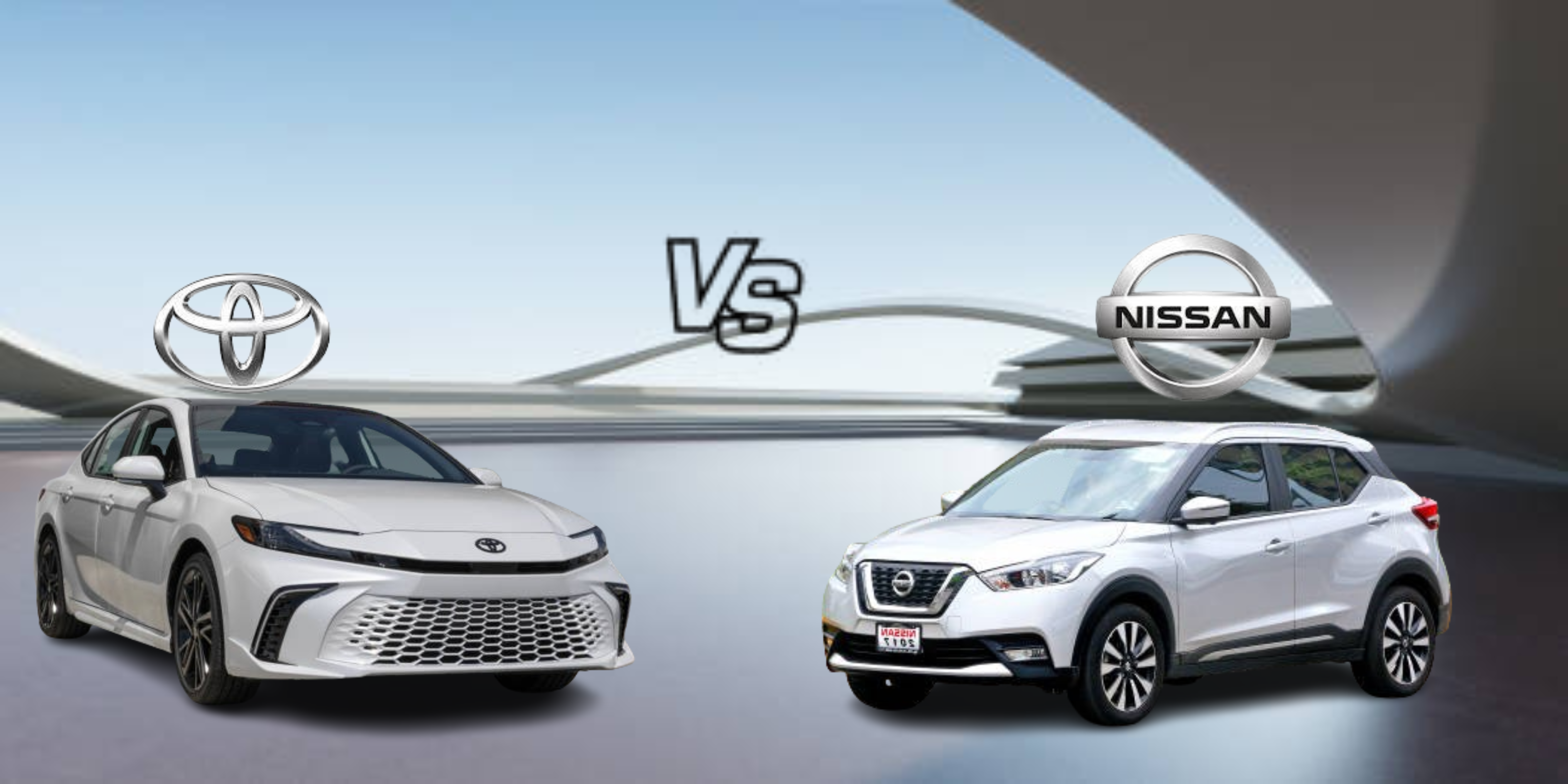When choosing between the 2025 Toyota Camry XSE and the 2024 Nissan Versa S, your decision hinges on lifestyle, budget, and performance preferences. These two sedans appeal to very different types of drivers—one targets luxury with sporty flair, while the other is a value-driven economy car built for everyday reliability. Let’s dive into this detailed comparison to help you decide which one is worth your money in 2025.
Price & Value
The 2025 Toyota Camry XSE comes with a starting MSRP around $35,000, sitting at the premium end of the midsize sedan category. It offers advanced safety features, a high-performance engine, and a refined interior experience. On the other hand, the 2024 Nissan Versa S starts at just $17,500, making it one of the most affordable new cars on the U.S. market. For buyers on a budget, the Versa S is undeniably attractive—but that lower price comes with trade-offs in power, space, and features.
Engine Performance and Driving Experience
If performance matters to you, the Camry XSE wins by a mile. It’s powered by a 2.5-liter 4-cylinder that produces 206 horsepower, or you can opt for a 3.5-liter V6 with up to 301 horsepower. The Camry delivers confident acceleration, stable handling, and a smoother ride overall.
The Versa S uses a 1.6-liter 4-cylinder engine generating just 122 horsepower. It’s designed for fuel efficiency and city commuting, not thrill-seeking. The Versa’s ride is adequate for short urban trips but doesn’t inspire the same level of driver engagement as the Camry XSE.
Fuel Efficiency
Here’s where the Versa regains ground. The 2024 Nissan Versa S delivers up to 40 MPG on the highway and around 32 MPG in the city. That’s highly attractive for commuters who prioritize fuel economy.
The 2025 Camry XSE is no slouch either. It achieves 28 MPG city / 39 MPG highway with the 4-cylinder engine and slightly less with the V6. Given its size and performance, that’s an impressive balance of power and economy.
Interior Comfort and Features
The Camry XSE feels like a near-luxury car inside. It includes dual-zone climate control, an 8-inch touchscreen with Apple CarPlay and Android Auto, leather-trimmed seats, and a panoramic glass roof. The fit and finish are top-tier for this segment, and its cabin is spacious enough for five adults.
The Versa S, by contrast, has a no-frills interior. You’ll find basic cloth seats, manual door locks, and a 7-inch touchscreen—although Apple CarPlay and Android Auto are notably absent on the base S trim. Rear seating is tighter, and the materials lean toward the utilitarian side.
Technology & Infotainment
The Camry offers a far more advanced tech suite. Its infotainment system is faster, more intuitive, and more connected. Optional upgrades like a JBL sound system, wireless charging, and a head-up display further elevate the experience.
In the Versa S, technology is more limited. Bluetooth is available, and the audio system gets the job done, but it lacks the seamless integration and extra features many drivers now expect.
Safety Ratings and Features
Both cars rank well in terms of safety, but Toyota edges ahead again thanks to its standard Toyota Safety Sense 3.0 suite. That includes adaptive cruise control, lane departure warning, pedestrian detection, and automatic emergency braking.
The Nissan Versa S offers Nissan Safety Shield 360 only in higher trims. The base S trim includes basic forward collision warning and automatic braking, but lacks blind-spot monitoring and lane keeping assist.
Cargo and Practicality
The Camry provides 15.1 cubic feet of trunk space, more than enough for luggage, groceries, or even golf clubs. The seats fold down in a 60/40 split, allowing for greater versatility.
The Versa offers 14.7 cubic feet, which is surprisingly close, but the narrower body limits bulkier item transport. Still, it holds its own in day-to-day cargo needs.
Reliability and Resale Value
Toyota’s long-standing reputation for durability and high resale value is a strong point in favor of the Camry. Even after five years, a Camry holds value exceptionally well and often stays on the road past 200,000 miles.
The Nissan Versa also has solid reliability, but it doesn’t retain value quite as well. Its lower starting price affects long-term resale, and it may show wear and tear sooner with heavy use.
Who Should Buy the 2025 Toyota Camry XSE?
Drivers seeking performance, comfort, and a near-luxury experience
Professionals commuting longer distances
Families needing more rear seat space and advanced safety
Buyers willing to invest for long-term value and features
Who Should Buy the 2024 Nissan Versa S?
Budget-conscious drivers or first-time car buyers
College students and city dwellers who prioritize gas mileage
Anyone seeking basic transportation with minimal frills
Buyers looking for a new car under $20K
Verdict: Which One Should You Buy?
If you’re looking for a refined, powerful sedan with modern tech and long-term reliability, the 2025 Toyota Camry XSE is the clear winner. However, if you’re on a strict budget or need a reliable runabout for basic errands and city driving, the 2024 Nissan Versa S is unbeatable in terms of affordability and efficiency.
Ultimately, the choice boils down to what you value most: upscale performance vs. affordable practicality. For many American drivers, either model could be the right answer—depending on your lifestyle.
Let us know your pick in the comments, and stay tuned to GoAmazonGo.com for more real-world car comparisons and buyer-focused reviews.

